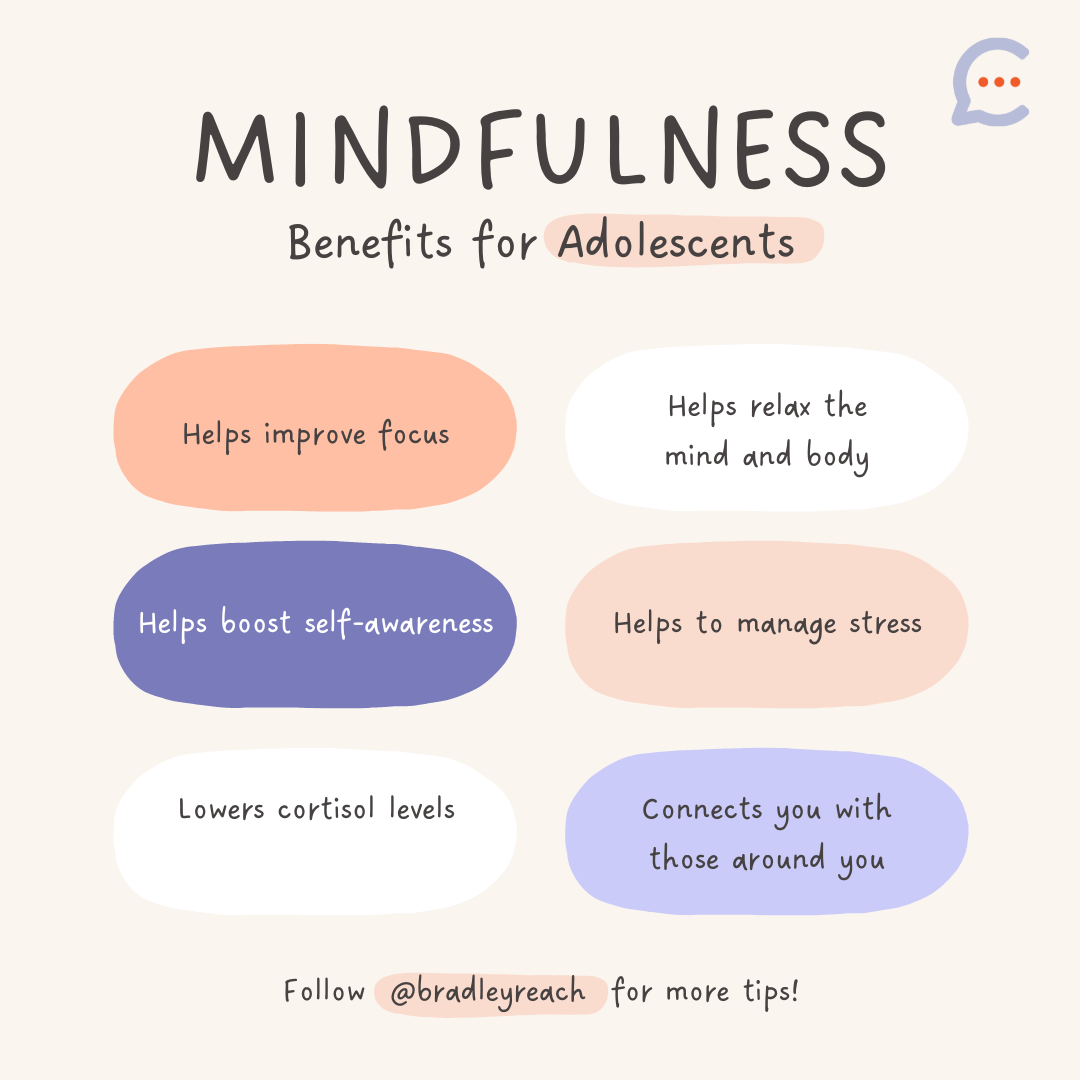Nurturing Adolescent Mental Health: The Power of Mindfulness
In today's fast-paced world, where distractions abound and pressures seem to mount by the day, the need for mindfulness has never been more apparent, especially among adolescents and teens. At Bradley REACH we are dedicated to supporting the well-being of young individuals and we recognize the profound impact that cultivating mindfulness can have on their mental health.
What is mindfulness, exactly?
At its core, mindfulness is the practice of being present in the moment, without judgment or attachment to thoughts or emotions. It involves paying attention to the present moment with openness, curiosity, and acceptance. While it may sound simple, the practice of mindfulness is a powerful tool that can help adolescents navigate the complexities of adolescence with greater ease and resilience.
So, why is mindfulness particularly important for adolescents and teens?
The teenage years are a period of immense change, both physically and emotionally. It's a time when young individuals are navigating their identities, relationships, academic pressures, and societal expectations. In the midst of these challenges, practicing mindfulness can provide adolescents with invaluable skills to cope with stress, regulate their emotions, and cultivate a greater sense of self-awareness.
What are the benefits of mindfulness for teens?
One of the key benefits of mindfulness for adolescents is its ability to reduce stress and anxiety. Research has shown that mindfulness practices, such as meditation and deep breathing exercises, can activate the body's relaxation response, helping to lower levels of cortisol, the stress hormone. By incorporating mindfulness into their daily routines, adolescents can develop healthier coping mechanisms for managing the inevitable stressors of life.
Moreover, mindfulness can enhance emotional regulation skills, which are crucial for navigating the ups and downs of adolescence. By learning to observe their thoughts and emotions without judgment, teens can develop a greater capacity to respond to challenging situations with clarity and composure. This can lead to improved relationships, better decision-making, and greater overall well-being.
How can adolescents cultivate mindfulness in their daily lives?
There are many simple yet effective mindfulness practices that teens can incorporate into their routines:
Breathing Exercises: Encourage teens to take a few moments each day to focus on their breath. They can practice deep breathing exercises, such as inhaling for a count of four, holding for a count of four, and exhaling for a count of four. This can help calm the mind and body, promoting a sense of relaxation and centeredness.
Mindful Movement: Activities such as yoga, tai chi, or simply going for a walk can be excellent ways for teens to cultivate mindfulness through movement. Encourage them to pay attention to the sensations in their bodies as they move, and to notice the sights, sounds, and smells around them.
Mindful Eating: Encourage teens to slow down and savor their meals, paying attention to the flavors, textures, and sensations of each bite. This can help them develop a healthier relationship with food and cultivate gratitude for nourishing their bodies.
Technology Use: In today's digital age, it's easy for adolescents to become consumed by screens and social media. Encourage them to take breaks from their devices and engage in activities that promote mindfulness, such as reading, drawing, or spending time outdoors.
By incorporating these practices into their daily lives, adolescents can develop a greater sense of self-awareness, resilience, and well-being. As a mental health organization committed to supporting the needs of young individuals, we believe that cultivating mindfulness is not only beneficial for adolescents but essential for their overall mental health and happiness.
DISCLAIMER:
The information, including but not limited to, text, graphics, images and other material contained on this website are for informational purposes only. No material on this site is intended to be a substitute for professional medical advice, diagnosis or treatment.
If you or your child are in crisis or experiencing mental health problems please seek the advice of a licensed clinician or call 988 or Kids Link in Rhode Island.
FOLLOW US FOR MORE:
RELATED ON THE BLOG:




